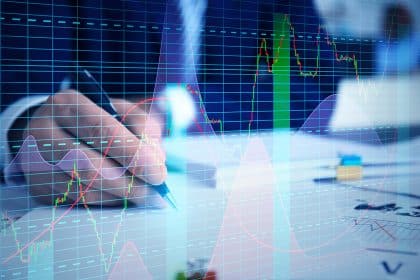The high inflation growth and the projected interest rate hike may result in an unwarranted situation of an economic recession.
American investors are bracing for at least a 1% interest rate hike from the Federal Reserve by the end of this month as high inflation readings are pointing towards this probability. Per data released by the Bureau of Labor Statistics on Wednesday, inflation grew 9.1% in June, a figure that comes off as the highest since November 1981.
The Federal Reserve officials are undoubtedly going to do something about this, and the most likely response is to top the interest rate at or near the previous hike of 75 basis points. As reported by CNBC, Fed funds futures for July rose to 81 basis points, an indication that the market is pricing in at least a 0.81% interest rate hike from the Feds by July 27.
While the 81 basis points were of utmost concern, the market sentiments and expectations in this regard have continued to rise with the fed funds futures pricing in as high as 93 basis points of a hike in July, according to BMO. The soaring Fed funds futures can be linked to a comment by Atlanta Fed President Raphael Bostic who said on Wednesday afternoon that the June CPI report is of utmost concern and that everything is “in play.”
Many traders are keeping their ears down for clues such as this from top Fed officials prior to the much-anticipated July meeting. The expectation is that at least one of them will make an unscheduled remark that might at least ease the suspense across the board.
High Inflation and Aggressive Interest Rate Can Trigger Recession
The high inflation growth and the projected interest rate hike may result in an unwarranted situation of an economic recession.
Should there be a continuous interest rate hike and failure to get the expected result from the hikes which is a tamed inflation, the risk of recession becomes very high. This is a particularly difficult spot the Feds are on because inflation cannot be left soaring, and the most viable monetary tool to curb this can also trigger this much bigger dilemma.
“The higher inflation means the Fed’s got to act more aggressively. The Fed acting more aggressively means recession risks is higher probability and higher probability of recession lowers rates,” said Andrew Brenner, head of international fixed income at National Alliance Securities.
The Fed officials are going to be thinking hard and long on this ahead of their meetings. However, while it seems the situation is dire in the United States, other advanced economic regions are also experiencing a similar dilemma.
The Bank of Canada recently raised its interest rate by 100 basis points, 25 more than the expected 75 basis points. The European Union has also revised its inflation expectation for this year to 8.3% as the ongoing Russia-Ukrainian brawl has continued to fuel the hike in the prices of goods.
next